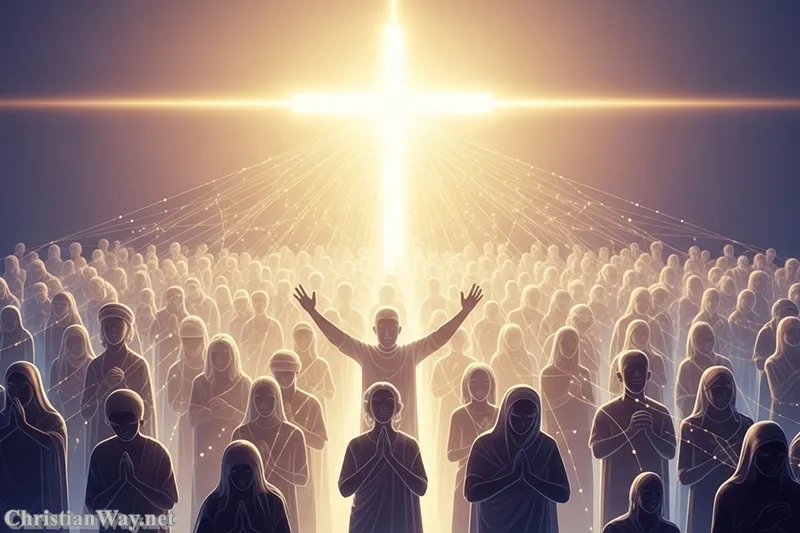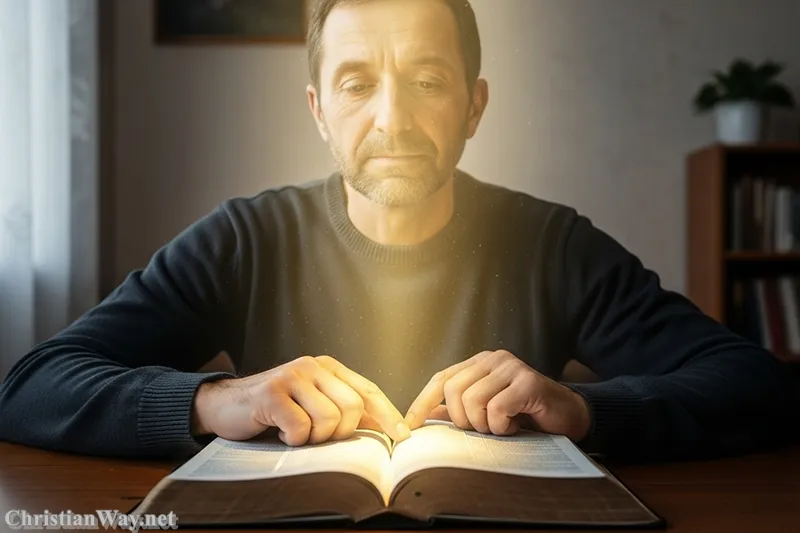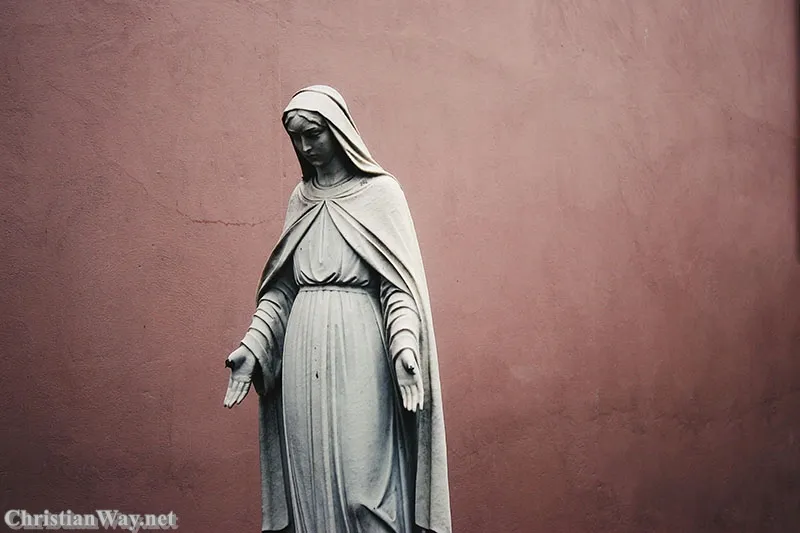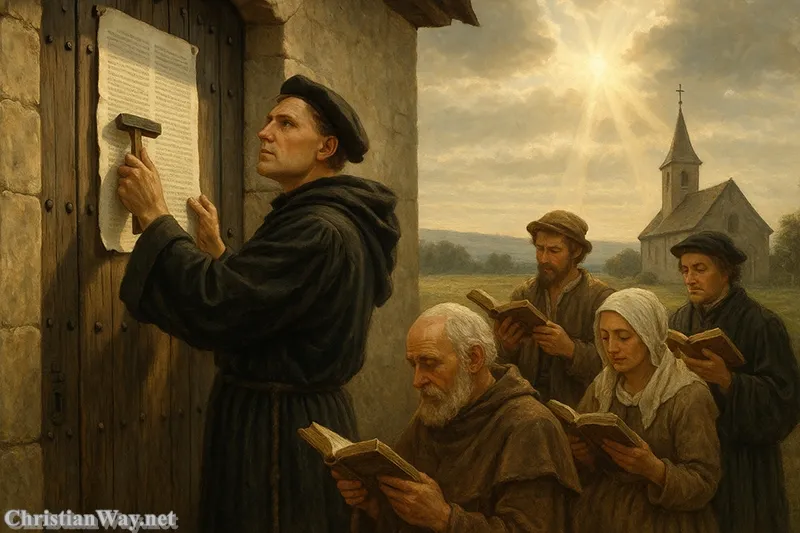Dear friends in Christ,
Every so often, God raises a voice that shakes the world—not through power or conquest, but through conviction. In the early sixteenth century, such a voice arose from the quiet corridors of a German monastery. His name was Martin Luther, and through his struggle with faith, his courage before authority, and his devotion to God’s Word, he became the spark that lit The Protestant Reformation — one of the most profound transformations in the history of Christianity.
To speak of Luther is not merely to recount the story of one man; it is to witness the birth of a movement that called the Church back to its source — to the Gospel of grace, the authority of Scripture, and the living reality of faith. His legacy reminds us that the Reformation was not born from rebellion, but from repentance — a deep longing that the Church might once again reflect the purity of Christ’s truth and love.
A Soul in Search of God
Martin Luther’s story begins not in defiance but in devotion. Born in 1483 in Eisleben, Germany, he grew up in a world steeped in religion yet shadowed by fear. The medieval Church was the center of life, but for many believers — including Luther — God seemed distant, stern, and demanding.
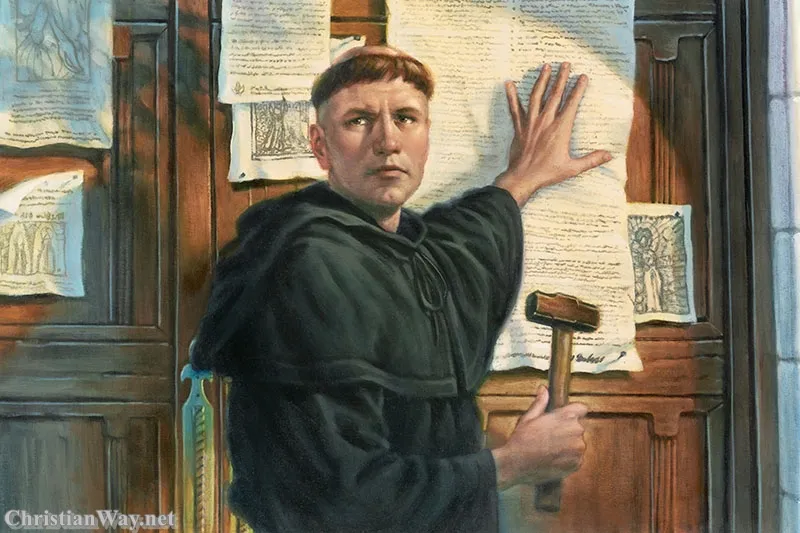
As a young man, after surviving a lightning storm that nearly killed him, Luther entered the Augustinian monastery in Erfurt. There he devoted himself to fasting, prayer, and confession, yearning for peace with God. Yet peace eluded him. The harder he tried to live righteously, the more he felt condemned by his own unworthiness. His heart echoed with the cry of every honest soul: “How can I, a sinner, be right before God?”
The Turning Point: Grace Unveiled
In his studies of Scripture — especially St. Paul’s Letter to the Romans — Luther discovered the liberating truth that would redefine his faith:
“The righteous shall live by faith.” — Romans 1:17
Here, the young monk saw that salvation is not a reward for human merit, but a gift of God’s grace received through faith in Jesus Christ. This revelation was the seed from which the Protestant Reformation would grow. In his own words, Luther said, “I felt myself reborn and to have gone through open doors into paradise.”
This encounter with grace became the heartbeat of all that followed. Luther had found the living Christ — not as a distant judge, but as a merciful Savior who clothes the sinner in His righteousness.
The Ninety-Five Theses: A Call to Repentance
Luther’s discovery of grace did not stay within his cell. When he saw that the Church’s practice of selling indulgences — promises of reduced punishment for sin — obscured the Gospel’s true message, he felt compelled to act.
On October 31, 1517, he posted his Ninety-Five Theses on the door of the Castle Church in Wittenberg. It was not an act of rebellion, but an academic invitation to dialogue — a call to return to repentance and authentic faith. Yet that act became the spark that set the world ablaze.
The Fire of Reform
The printing press carried Luther’s words across Europe. What began as a local theological debate soon became a movement. Luther’s central claim — that salvation is by grace through faith, and that the Word of God is the ultimate authority — resonated deeply with many who longed for spiritual renewal.
The Church’s response was swift and severe. Luther was summoned to defend his writings before Church and Empire, and in 1521, at the Diet of Worms, he stood before Emperor Charles V. There, facing the threat of excommunication and death, Luther uttered the words that would echo through history:
“Unless I am convinced by the testimony of the Scriptures or by clear reason… my conscience is captive to the Word of God. Here I stand; I can do no other. God help me. Amen.”
At that moment, Luther did more than challenge the Church — he gave voice to a truth that would reshape Western Christianity: that the conscience of the believer must stand under the authority of God’s Word, not merely human power.
The Heart of the Reformation
The Protestant Reformation, ignited by Luther, was not a single event but a profound spiritual renewal. Its central message revolved around five enduring principles, often summarized by later theologians as the “Five Solas”:
Sola Scriptura — Scripture Alone
Luther affirmed that the Bible is the supreme and final authority for faith and life. The Scriptures are not locked away in Latin but belong to every believer. Luther’s translation of the Bible into German brought God’s Word into the hands and hearts of ordinary people, forever changing the spiritual landscape of Europe.
“The Bible is alive,” Luther said, “it speaks to me; it has feet, it runs after me; it has hands, it lays hold of me.”
Sola Fide — Faith Alone
No human work or merit can earn salvation. We are justified — made righteous — by faith in Christ alone. This truth shattered centuries of fear and restored joy to the Gospel.
Sola Gratia — Grace Alone
Luther’s teaching reawakened the world to the grace of God — that salvation is entirely His initiative. As St. Paul writes, “By grace you have been saved through faith, and this is not your own doing; it is the gift of God” (Ephesians 2:8).
Solus Christus — Christ Alone
Christ is the only mediator between God and humanity. No priest or pope can replace Him, for He alone redeems and intercedes for us.
Soli Deo Gloria — Glory to God Alone
Every aspect of salvation and life belongs to God’s glory. Human pride has no place before divine mercy.
Together, these truths became the foundation of the Reformation, a return to the simplicity and power of the early Christian faith.
The Priesthood of All Believers
Another of Luther’s revolutionary insights was the priesthood of all believers. He taught that every Christian, by baptism, shares in Christ’s priestly ministry. The grace of God is not confined to the altar or the pulpit but fills every corner of life.
This teaching restored dignity to ordinary vocations — to work, family, and community. The farmer in the field, the mother with her children, the merchant at his stall — all could serve God as faithfully as the monk or priest.
In this, Luther’s theology transformed not only religion but also society, shaping the modern understanding of individual worth and calling.
The Cost of Reformation
Luther’s stand came at great personal cost. He was excommunicated by the Church and declared an outlaw by the Empire. Protected by sympathetic princes, he continued his work in hiding, translating Scripture and writing prolifically.
But the Reformation he ignited spread rapidly — through Germany, Switzerland, Scandinavia, England, and beyond — giving rise to a host of new Christian traditions: Lutheran, Reformed, Anglican, and later, Baptist and Methodist.
A Divided Christendom
Yet this renewal also brought pain. The unity of the Western Church was broken, and centuries of conflict followed. Still, even amid division, the Reformation compelled the entire Church — Catholic and Protestant alike — to return to the essentials of faith and to seek reform within.
The Council of Trent (1545–1563) would later address many abuses and clarify doctrine within the Catholic Church, showing that even through conflict, God works toward purification and renewal.
The Enduring Legacy of Martin Luther
Today, five centuries later, Martin Luther stands as one of the most influential figures in Christian history. The Protestant Reformation he inspired not only transformed theology but also reshaped education, politics, and culture. By championing the authority of Scripture and the freedom of conscience, Luther helped lay the groundwork for modern thought and religious liberty.
Yet beyond history, his greatest legacy is spiritual. Luther taught us that the heart of Christianity is not found in ritual or rule, but in a living relationship with Christ — the Savior who gives Himself freely to those who trust in Him.
“Faith is a living, daring confidence in God’s grace,” he wrote, “so sure and certain that a man would stake his life on it a thousand times.”
That daring confidence continues to call the Church, in every age, to rediscover the Gospel’s liberating power.
A Call to Renewal and Unity
In recent decades, Christians across traditions have sought to heal the wounds of the Reformation. The Joint Declaration on the Doctrine of Justification (1999) between the Catholic Church and the Lutheran World Federation affirmed a shared belief: that we are justified by grace through faith in Christ.
This moment of reconciliation was a reminder that the Reformation, though born of division, can now become a bridge — a call for the whole Church to return to Christ as its center and head.
“That they may all be one; even as You, Father, are in Me, and I in You.” — John 17:21
The true spirit of the Reformation is not rebellion, but renewal — a humble turning of the heart toward the Gospel of Christ.
Reflect and Pray
Dear brothers and sisters, the life of Martin Luther and the movement of The Protestant Reformation stand as a lasting testimony that God can use even the anguish of a single soul to awaken a sleeping Church.
May we, too, allow the Word of God to question, purify, and reform us. Let us hold fast to the truth that faith is not a relic of the past but the living breath of the believer who trusts in Christ alone.
“If the Son makes you free, you will be free indeed.” — John 8:36
May the same Spirit who moved through Wittenberg move again through our world — reforming hearts, renewing faith, and leading all Christians toward the unity Christ prayed for.
May the peace of Christ dwell richly in your heart, and may His Word reform your soul in love and truth.
— Fr. John Matthew, for Christian Way
